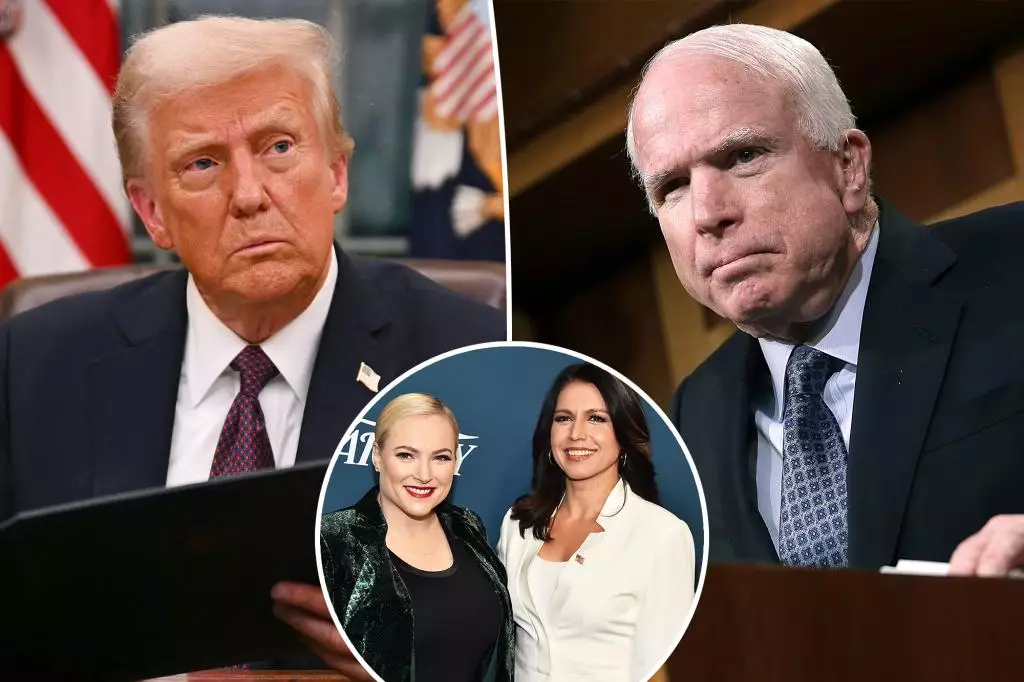The animosity between Donald Trump and the late Senator John McCain is one of the more infamous political feuds in recent history, rooted in a provocative statement made by Trump in 2015 during a campaign speech. His dismissive remark regarding McCain’s status as a prisoner of war—“I like people who weren’t captured”—set the stage for a conflict that would span several years. This initial jab not only alienated McCain but also ignited a significant backlash from the public and political circles alike, showcasing the increasingly divisive nature of American politics.
The animosity didn’t dissipate with time. McCain’s funeral in 2018 saw Trump notably absent, a glaring omission that he seemed to decry later, claiming he had not received the customary “thank you” for honoring the former POW’s legacy. This public battle of egos was compounded by McCain’s pivotal “thumbs down” vote against Trump’s attempt to repeal the Affordable Care Act, further entrenching their discord. The fallout from these incidents permeated through their families, with Meghan McCain vocalizing her frustrations. She did not hold back, labeling Trump with unflattering epithets and firmly defending her father’s integrity, epitomizing the personal nature of political rivalries.
Despite the bitter history, a surprising development appears to have transformed this longstanding feud. The confirmation proceedings for Tulsi Gabbard as Trump’s pick for Director of National Intelligence have seemingly acted as an unexpected bridge between Meghan McCain and the former president. Gabbard, who shares a close friendship with Meghan, benefitted from her advocacy during the confirmation process—an indication that personal relationships can complicate political narratives.
McCain’s active efforts, including appearances on prominent conservative platforms and direct outreach to skeptical senators, laid out a path for potential reconciliation. The irony of Meghan McCain playing a pivotal role in Gabbard’s confirmation—calling upon her network and even writing an op-ed—highlights how interwoven personal and political relationships can be, creating avenues for dialogue even amid fierce opposition.
Recent reports suggest that the White House acknowledged Meghan McCain’s contributions, with Trump expressing gratitude through intermediaries. This acknowledgment signifies a thawing of relations that many would not have predicted just a few years ago. The social dynamics that initially fueled their feud appear to be shifting, indicating a more forgiving environment, at least in the realm of political alliances. The invitation to McCain’s family for Gabbard’s swearing-in ceremony further cements this narrative of reconciliation.
The evolution of the relationship between Meghan McCain and Donald Trump underscores the complexities of political feuds, where personal loyalties can transcend longstanding animosities. As political landscapes continually shift, the interplay between personal relationships and broader political struggles may redefine how future generations perceive these contentious dynamics. The remnants of their bitter feud, once laden with vitriol, appear to be gradually morphing into a more nuanced interaction, which might pave the way for unexpected alliances in the political sphere.

